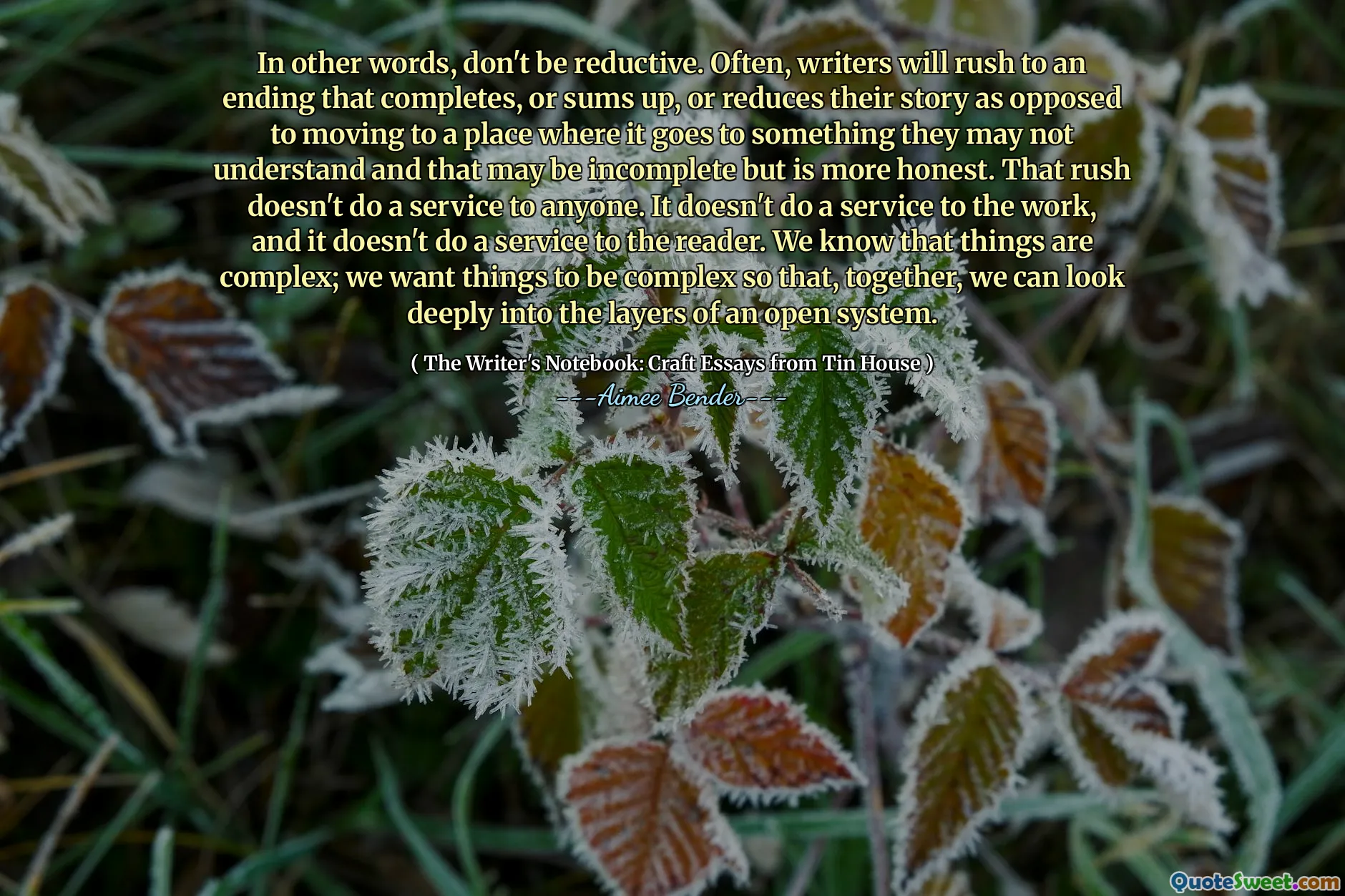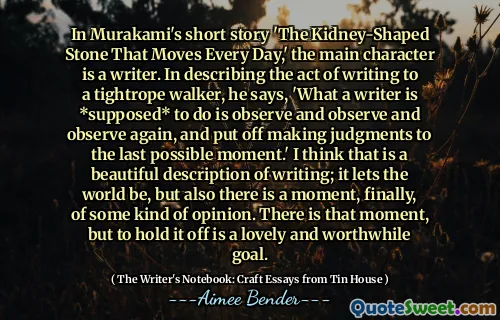
In other words, don't be reductive. Often, writers will rush to an ending that completes, or sums up, or reduces their story as opposed to moving to a place where it goes to something they may not understand and that may be incomplete but is more honest. That rush doesn't do a service to anyone. It doesn't do a service to the work, and it doesn't do a service to the reader. We know that things are complex; we want things to be complex so that, together, we can look deeply into the layers of an open system.
Aimee Bender, in her essay from "The Writer's Notebook," emphasizes the importance of complexity in storytelling. She critiques the tendency of writers to quickly resolve their narratives with tidy conclusions that oversimplify the themes and emotions involved. Rather than providing clarity, these rushed endings often dilute the richness of the story, failing to acknowledge the intricate realities of life. Bender suggests that an honest exploration of complexities allows both the writer and the reader to engage more genuinely with the material.
By not rushing to a definitive conclusion, writers create space for ambiguity and uncertainty, reflecting the true nature of human experiences. Bender advocates for embracing the incomplete and the unknown in storytelling, as this approach fosters a deeper connection with readers who crave authenticity in literature. Overall, her insights serve as a reminder that literature should mirror the multifaceted and often confusing aspects of reality, allowing for a more profound engagement with the narrative.







